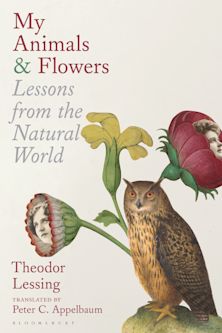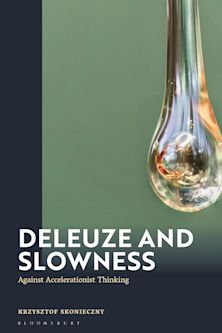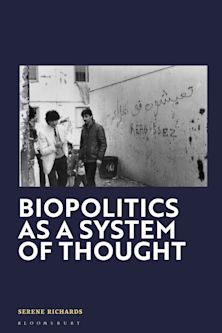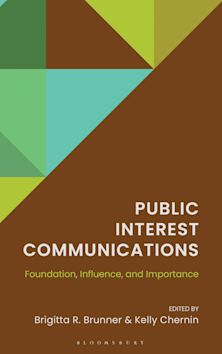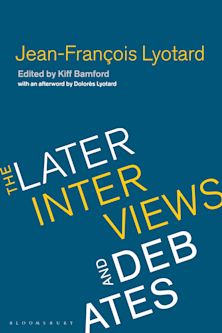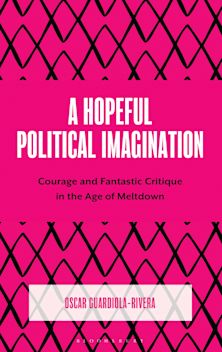- Home
- ACADEMIC
- Philosophy
- Social and Political Philosophy
- Recovering Hegel from the Critique of Leo Strauss
Recovering Hegel from the Critique of Leo Strauss
The Virtues of Modernity
Recovering Hegel from the Critique of Leo Strauss
The Virtues of Modernity
This product is usually dispatched within 3 days
- Delivery and returns info
-
Free CA delivery on orders $40 or over
You must sign in to add this item to your wishlist. Please sign in or create an account
Description
Recovering Hegel from the Critique of Leo Srauss offers a defense of modernity against the critique of the influential mid-twentieth century political philosopher, Leo Strauss. Strauss, whose influence on contemporary conservative political theory is well documented, discovered the ground of much of what he found wanting in contemporary political and social life to lie in the philosophy of the 19th century German philosopher, G. W. F. Hegel. Specifically, Strauss accused Hegel of being the greatest exponent of historicism and thus the relativism that afflicts modern thought. Ultimately, according to Strauss, this has led to the nihilism and general mediocrity that characterizes modern western culture. In this book, Sara MacDonald and Barry Craig examine Strauss’s reading of Hegel and argue that in fact it is a mis-reading. Contrary to Strauss’s interpretation, this book holds that Hegel was no relativist and in fact sought to show the compatibility of objective, eternal truth with modern human subjectivity. At the same time, it illustrates the way in which Hegel’s thought prepared the ground for enlightened modern liberal democracies and also remains relevant to current social and political conversations.
Table of Contents
Introduction
Chapter One: Strauss’s Critique of Modernity
Chapter Two: Faith and Reason
Chapter Three: Hegelian Freedom
Chapter Four: Modern Morality
Chapter Five: Ethical Realities
Conclusion
Product details
| Published | Nov 14 2016 |
|---|---|
| Format | Paperback |
| Edition | 1st |
| Extent | 164 |
| ISBN | 9781498550406 |
| Imprint | Lexington Books |
| Dimensions | 230 x 151 mm |
| Publisher | Bloomsbury Publishing |
About the contributors
Reviews
-
This useful book explores, and defends, Hegel’s political philosophy in response to Leo Strauss’s critique of Hegel’s defense of modernity. The authors have some sympathy for Strauss’s critique of modernity, but they argue that Hegel anticipated Strauss’s reservations about modernity, and they agree with Hegel, contra Strauss, that virtue and freedom can be reconciled.
The Review of Politics
-
Craig and MacDonald have given an impressive defense of Hegel and of modern life. In particular, they respond to Leo Strauss's critique of Hegel and his preference for ancient political thought, demonstrating that Hegel properly understood many of the concerns that underlie Strauss's turn to the ancients. With great detail and subtlety, the authors show the extent to which Strauss is influenced by Kojeve's interpretation of Hegel as a secular thinker. Not only does Hegel evade Strauss's criticisms, they argue, but he also gives a better defense than Strauss of political life as well as philosophy. The authors write with clarity and grace. Their book should be read and pondered by anyone who cares about the modern world, the relation between faith and reason, and humanity's prospects for the future.
Mary Nichols, Baylor University
-
Craig and MacDonald reopen the now over fifty year old debate between Leo Strauss and Alexandre Kojeve, which found expression in the collaborative volume On Tyranny. Unlike almost all who are interested in this quarrel, these authors seek to vindicate the Kojevian, or rather the Hegelian, side of the dispute: their chief approach is to deny that Kojeve can rightly speak for Hegel. Strauss, they argue, may have the best of Kojeve, but he does not have the best of the authentic Hegel, for he ignores the theological and metaphysical foundations of Hegelian thought. With Hegel in hand the authors attempt to vindicate modernity from Strauss’s famous critique. This is a challenging and rewarding interpretation both for those who lean toward Strauss and those who lean toward Kojeve in this debate.
Michael Zuckert, University of Notre Dame











